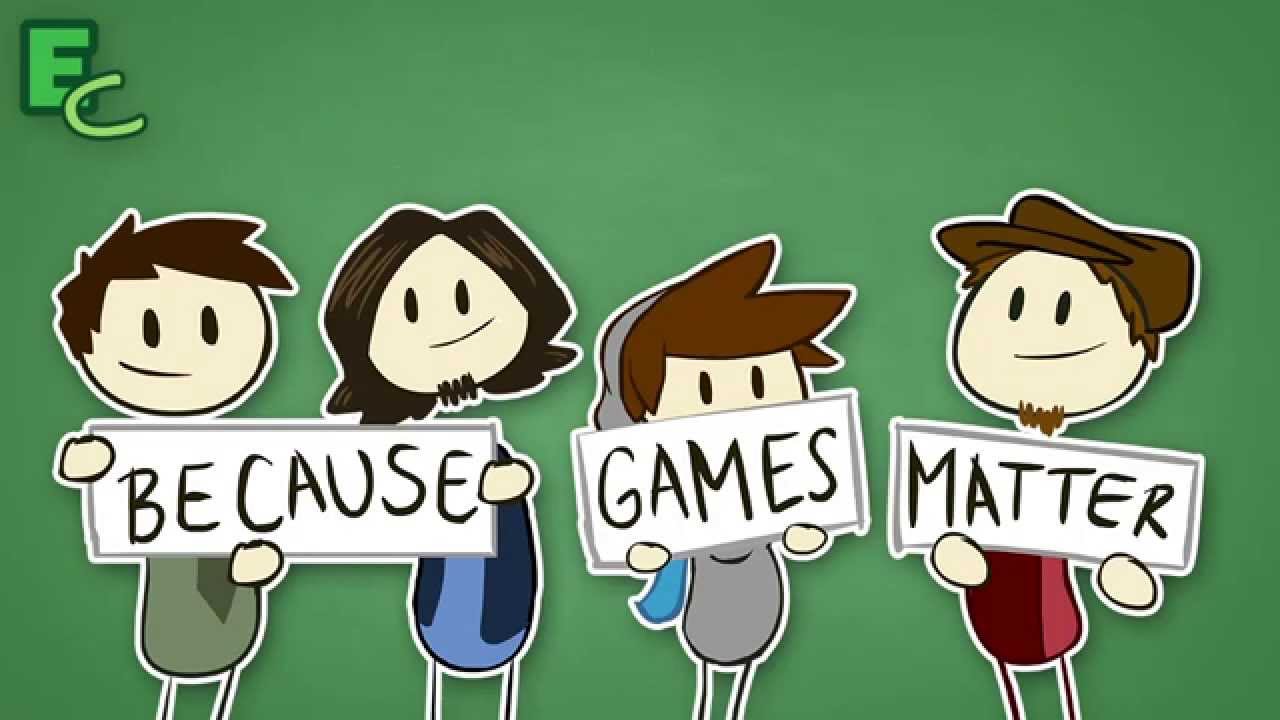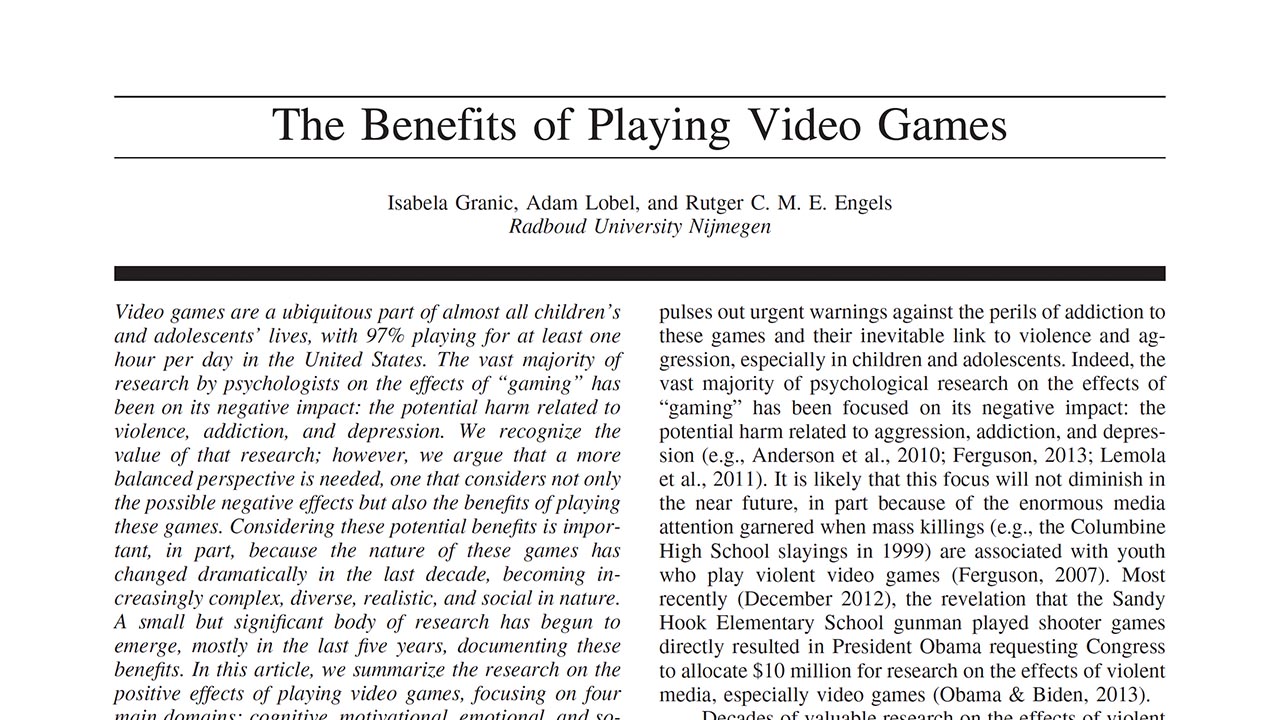Master Thesis / 2014
Quick Info
Mentor: Carl-Erik Engqvist (Humlab)
Team: individual project
Year: 2014
Place: Informatics, Umeå University
Brief
I love video games and I do want them to become better, smarter and more intelligent, without excluding the fun and entertainment factors. When I started playing video games it was the storyline aspect that got me involved. I still remember the first hours and days, trying to fight enemies and constantly losing. My reason for trying so hard was that I wanted to know the story, because I was getting involved with the characters.
Until today, I play mostly single-player games, which means that I’m not directly facing other people and I am not compared to them. I also noticed that playing alone allows me to immerse more in the story and understand it better. That’s why I as so fascinated in the topic of immersive game narratives being able to influence our capacity for empathy and wanted to explore it deeper.
The Question
I started with a bold questions of "Can video games make us better people?", while not perfectly accurate (after all what does "better people" really mean?), it encapsulates the main thought. Games give us this incredible opportunity to step into someone elses shoes and see as the story unveils from their point of view. That means that we can exprience situations that otherwise we might never experience in real life. Can we build emapthy for others in that way?
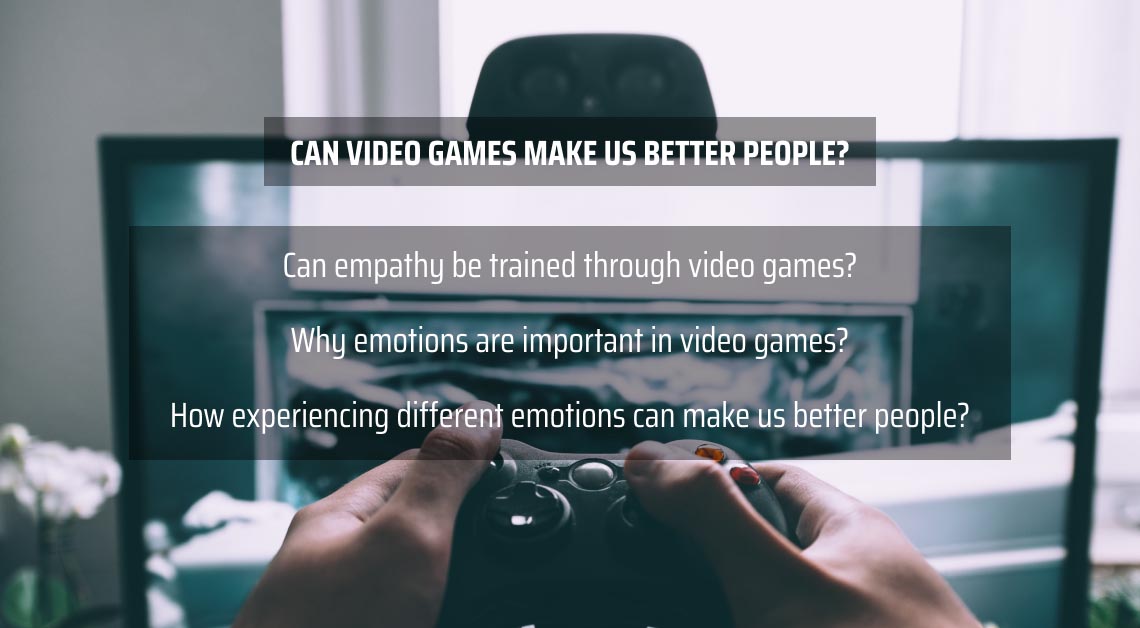

Resarch area
At the time most research focused on how shooters and action games enhance our reaction time and how MMO games influence co-operation and strategic thinking. However, those benefits usually concern only multi-player, human-versus-human competitive play. Single-player games have not been discussed in research as often.
Moreover, researchers seem to focus on mechanics rather than aesthetics and subsequent long-lasting feelings. The studied feelings are those of happiness, satisfaction, attachment and relaxation due to games’ interactivity. Moral and empathetic emotions are rarely mentioned. In my thesis I try to investigate one aspect of the potential benefits, which is feelings and experience lasting beyond the gameplay time, leading to positive influence on player’s attitudes or behavior.
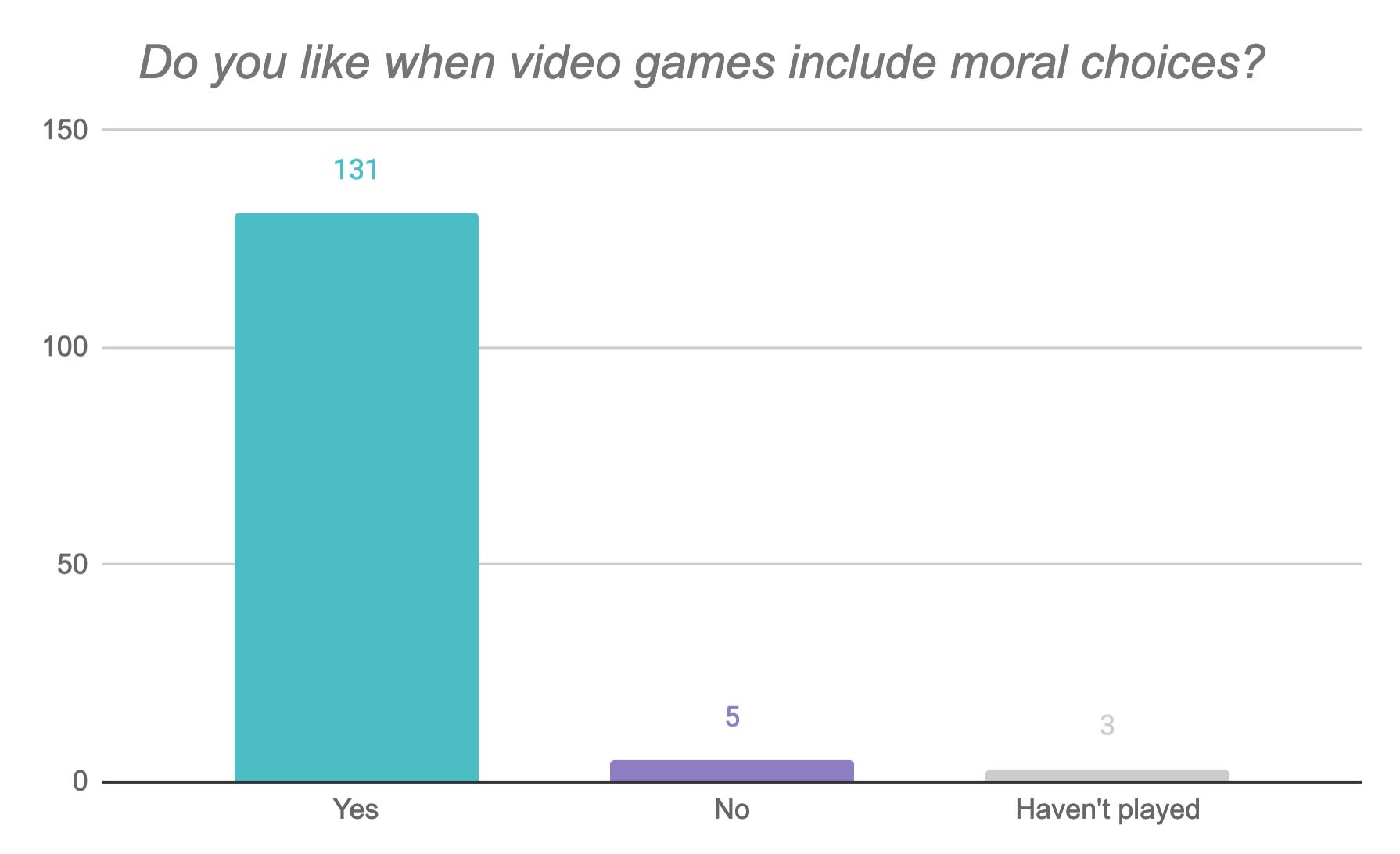
Methodology
The study was based on examples of games which are considered emotional and meaningful, framed with the theory on correlation of emotions, morals, decision making and behavior. I also carried out quantitative research through a survey with over 100 participants about the emotional games and why they are worth attention as well as follow up qualitative interviews and empirical research playing the titles mentioned most often.
The full thesis
If all this sounds intersting you can download the thesis PDF to read more in detail about my research and hopes for video games evolving into a medium for empathy.
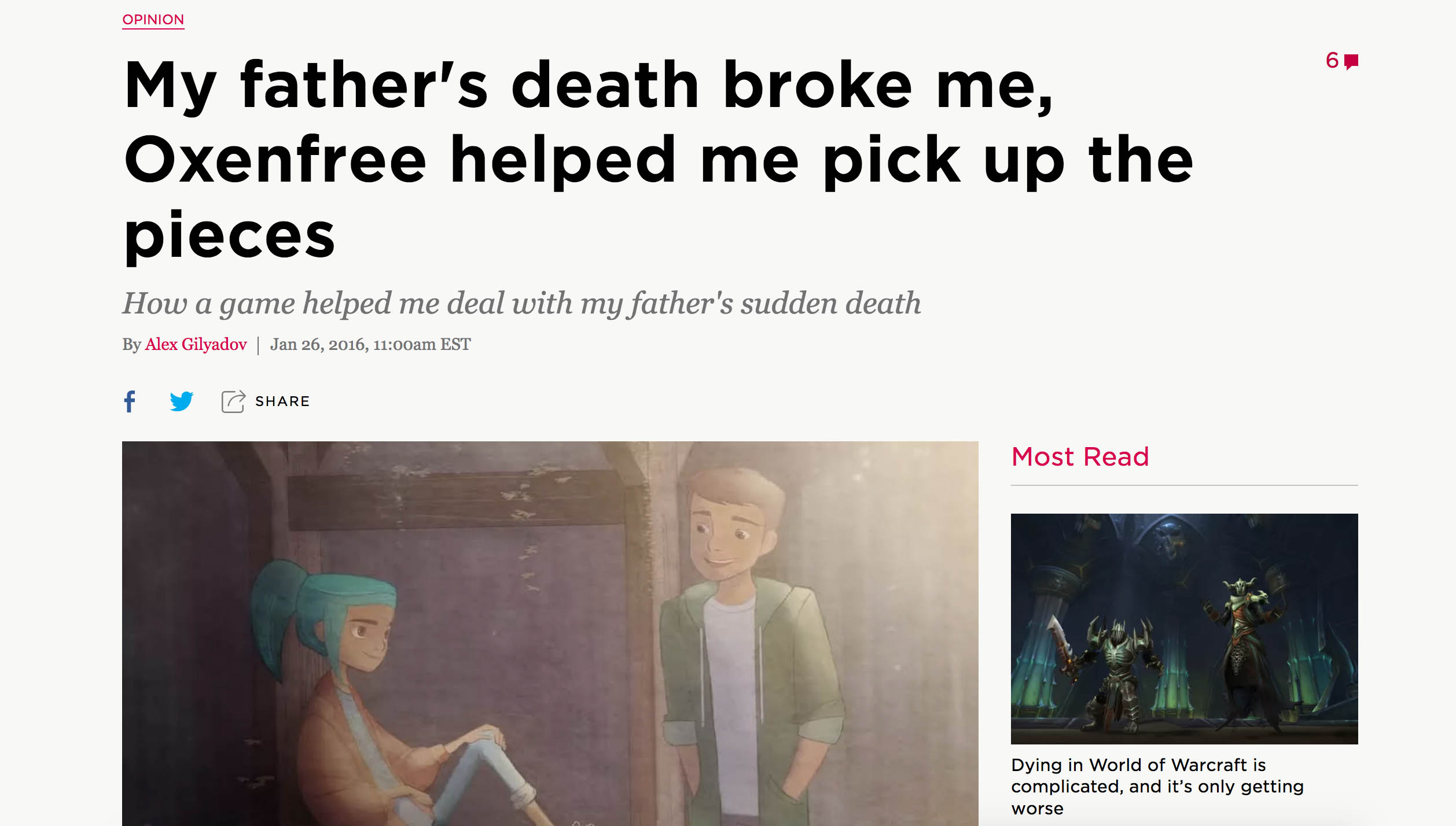
What makes games impactful
The study was based on examples of games which are considered emotional and meaningful, framed with the theory on correlation of emotions, morals, decision making and behavior. Throught empirical research I found the key aspects of emotional video games to be: believable characters and relationships between them, mood set with the help of narrative and music, and choices with consequences. Applying those elements to games, can make them become a strong persuasive medium, which can be used for good.
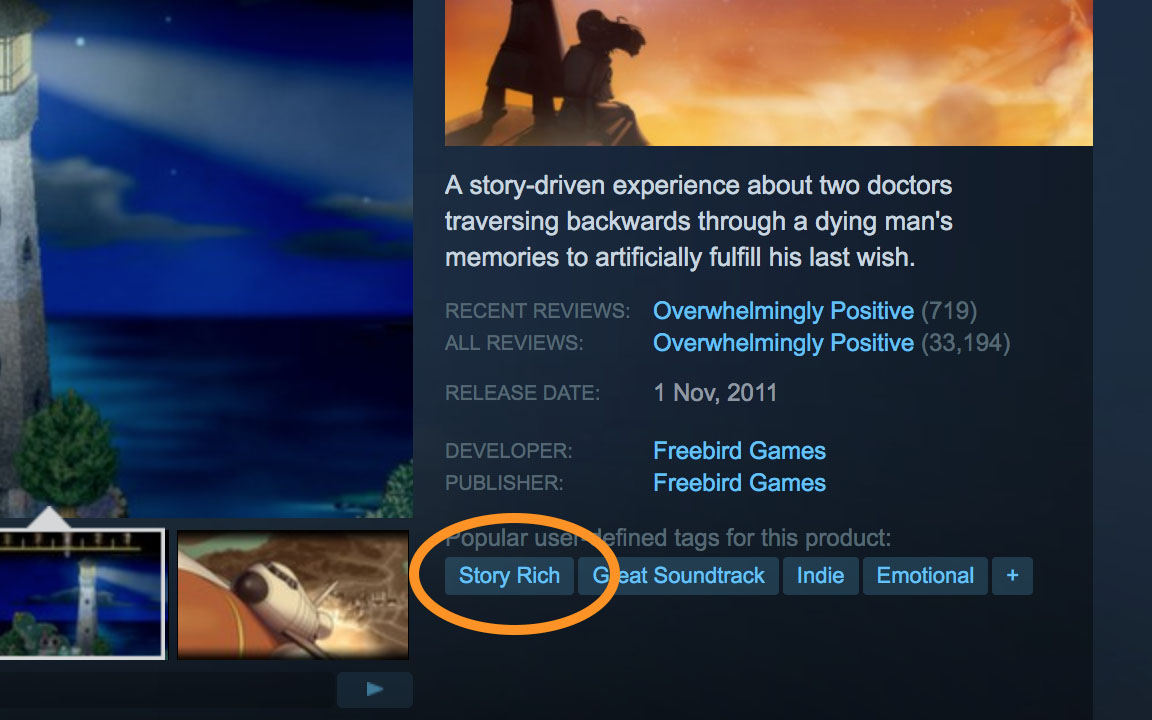
#storyrich
The emergence of indie market caused many unconventional games to appear, unconventional in that they do not follow the same proved formula used by AAA titles. Thanks to that we get to experience more down-to-earth games, where the character is not a space-marine-super-soldier saving the universe, but a writer on a family retreat to overcome a writer’s block (The Novelist) or a college student coming home after a year abroad (Gone Home). Many of those games would earn a tag of "Story Rich", as players are willing to experience something more.

More games follow
Some succesful AAA titles like The Last of Us and Tomb Raider (reboot) contributed to opening up the medium os video games to lasting emotions rather than uick thrills. In the recent years even more and more games about difficult topics surface - such as "Drowning" telling a story of falling deeper into depression, and "Hyperlight Drifter" being a metaphor for heart disease.
Acknowledgements
In 2013 this thesis seemed a lot ahead of its time. These days many more people research games, and different types of games collaborative or not, serious or fun party games. I struggled a lot finding relvant scientificly-proven material and trying to carry out some research on my own seemed like the only choice. While far from flawless, most of all I learned a lot through this experience!
I hope that games keep developing in this direction, and I hope to be part of that on the developer side next time!
I'm grateful for Carl Erik-Engqvist from Humlab that helped challenged my views and always inspired me to write more. Beside there here are a few resources and talks that made this work a lot easier.

Next Project
cINK is a design fiction set in 2037 when people decided to push constant connectivity to the maximum and don't require an external object to be able to experience the online world.

